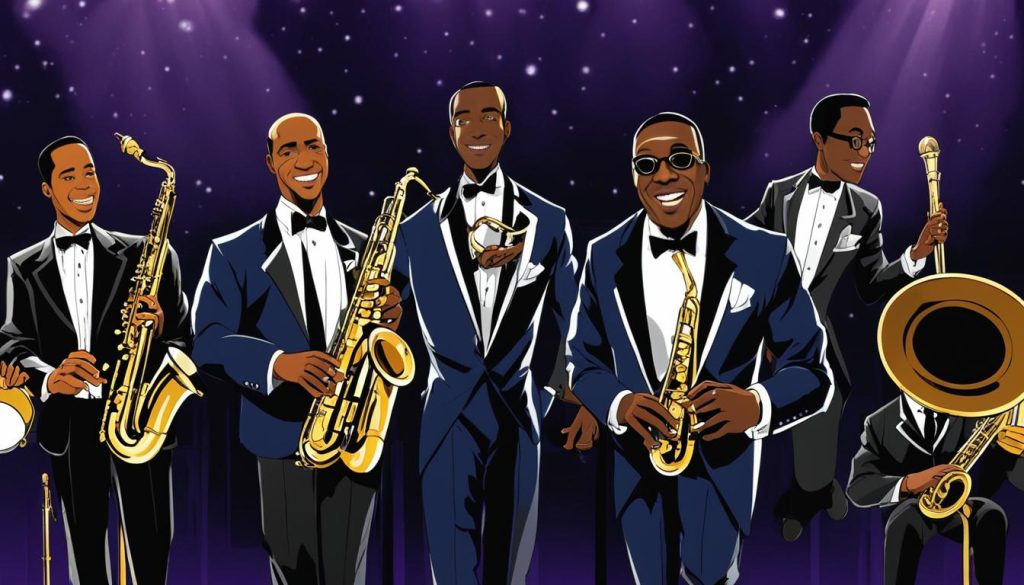All That Jazz: A Deep Dive into Music & Culture
Jazz music is often regarded as one of the most exciting and engaging genres of music, with its dynamic rhythms and soulful melodies captivating audiences around the world. From its origins in the African American communities of New Orleans in the late 19th century to its evolution into one of the most iconic and recognizable forms of music, jazz has continued to inspire and energize fans of all backgrounds and ages.
At its core, jazz is a celebration of the diverse cultural traditions that have shaped the music and history of communities around the world, from the vibrant rhythms of the Congo to the soulful melodies of New York’s Harlem Renaissance. Its ability to combine these diverse influences into a cohesive and meaningful musical expression is what has made jazz such a vital and influential force in modern society.
Key Takeaways:
- Jazz music is a diverse and dynamic genre that reflects the cultural traditions of communities around the world.
- Its evolution from African American communities in New Orleans to a global musical phenomenon highlights its enduring popularity and cultural significance.
- Jazz has been influential in social movements and popular culture, inspiring generations of musicians and audiences alike.
- Its ability to bring people together and bridge cultural divides is a testament to the power of music in our lives.
- Continued exploration and appreciation of jazz music can enrich our understanding of the world and the diverse communities that call it home.
The Origins and Evolution of Jazz
Jazz is a music genre that originated in the late 19th and early 20th centuries in the United States. The origins of jazz can be traced back to African musical traditions and the influence of African-American communities. This unique blend of cultures helped create a new form of music that was both innovative and captivating.
Over time, jazz has evolved and adapted to different cultures and styles, resulting in a diverse range of sounds and rhythms that characterize the genre. Jazz music has experienced numerous stylistic changes and distinct periods of development, including:
| Period | Description |
|---|---|
| New Orleans Jazz | The earliest style of jazz, developed in New Orleans in the early 1900s. |
| Swing Jazz | Developed during the 1930s and 1940s, this style of jazz is characterized by a strong rhythmic drive and an emphasis on improvisation. |
| Bebop | Developed in the 1940s, bebop is characterized by fast tempos, complex harmonies, and intricate melodies. |
| Cool Jazz | Developed in the late 1940s and early 1950s, cool jazz has a relaxed and restrained sound, with a focus on subtlety and nuance. |
| Free Jazz | Developed in the 1960s, free jazz is characterized by its experimental, free-form structure and lack of traditional rules or conventions. |
Modern jazz musicians continue to push the boundaries of the genre, creating new and exciting sounds that continue to evolve jazz music.

Image caption: A visual representation of the evolution of jazz music.
Jazz and Cultural Impact
Jazz music has had a significant cultural impact that extends far beyond the world of music. Jazz has been at the forefront of social movements and has been used as a tool for inspiring change and promoting equality.
One notable example of jazz’s impact on society is during the Civil Rights Movement of the 1960s. Jazz musicians, including Nina Simone and Max Roach, used their music to express their voices and to bring attention to the injustices of segregation. Their music helped to unite different communities and to inspire hope for a better future.
Jazz has also been highly influential in shaping popular culture. From the iconic jazz standards of the 1920s and 30s, to the fusion of jazz with rock and roll in the 1970s, jazz music has had a profound influence on the evolution of popular music.
The ability of jazz to transcend boundaries and bring people together is perhaps its greatest cultural impact. Jazz has been embraced all around the world, and has been used as a symbol of freedom and unity. Jazz festivals are now held in many countries, drawing large crowds of jazz enthusiasts from all walks of life.
The Jazz Greats Who Made a Cultural Impact
Many jazz musicians have made significant contributions to both the music industry and society as a whole, creating timeless music that continues to inspire new generations of musicians and fans.
| Jazz Musician | Significant Contributions |
|---|---|
| Louis Armstrong | Considered one of the most influential musicians in the history of jazz, Armstrong helped to popularize jazz music around the world. |
| Duke Ellington | Ellington was a prolific composer and bandleader, known for his innovative arrangements and collaborations with other musicians. |
| Ella Fitzgerald | With her powerful voice and captivating stage presence, Fitzgerald broke down barriers and paved the way for other women in jazz. |
| Miles Davis | Davis was a trailblazer in the world of jazz, pushing the boundaries of the genre with his incorporation of rock and electronic music. |
These jazz greats, along with many others, have left an indelible mark on jazz music and its cultural impact. Their contributions have helped to shape the genre and to inspire new generations of musicians.

Conclusion:
The article has explored the rich history and cultural impact of jazz, highlighting the diverse range of sounds and rhythms that characterize this genre. Jazz has an enduring popularity that speaks to its ability to capture the essence of human expression. Through its evolution and influence on society, jazz has become a vital part of the music industry and cultural heritage.
Overall, the article has showcased the origins of jazz, its development over time, and its significant contributions to social movements, popular culture, and society as a whole. The enduring legacy of jazz is a testament to its unique ability to transcend boundaries and bring people together through music.
In conclusion, this deep dive into the world of jazz has revealed the significant impact this genre has had on music and culture. Its influence continues to resonate today and will undoubtedly inspire future generations of musicians and enthusiasts alike.
FAQ
What is jazz?
Jazz is a genre of music that originated in African-American communities in the late 19th and early 20th centuries. It is characterized by its improvisation, syncopated rhythms, and unique chord progressions.
How did jazz evolve over time?
Jazz has evolved through various styles and influences, including ragtime, blues, swing, bebop, and fusion. Each era brought its own innovations and developments, shaping the diverse range of sounds and rhythms we hear in jazz today.
What is the cultural impact of jazz?
Jazz has had a significant cultural impact, serving as a platform for social movements, promoting cultural exchanges, and inspiring creativity in various art forms. It has also played a role in breaking down racial barriers and fostering a sense of unity among different communities.
Who are some famous jazz musicians?
There have been many influential jazz musicians throughout history, including Louis Armstrong, Miles Davis, Ella Fitzgerald, Duke Ellington, and John Coltrane, among others. Their contributions to the genre have shaped the course of jazz and left a lasting legacy.
Why is jazz still popular today?
Jazz continues to be popular because of its timeless appeal, its ability to evoke emotions, and its ability to adapt and incorporate new influences. Jazz offers a unique form of musical expression that resonates with people from different backgrounds and cultures.
How does jazz capture the essence of human expression?
Jazz is known for its improvisation, allowing musicians to freely express their emotions and creativity through their instruments. It embraces spontaneity and encourages individuality, making it a powerful vehicle for conveying the diversity and complexity of human experiences.
